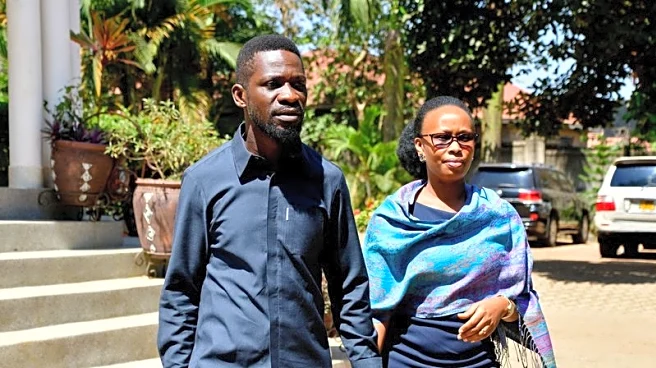Rapid Read • 8 min read
President Trump has dispatched special envoy Steve Witkoff to Moscow in a final effort to negotiate a ceasefire between Russia and Ukraine. This move comes just days before Trump's deadline for Russia to engage seriously in peace talks. Trump has indicated that if Russian President Vladimir Putin does not agree to a ceasefire, secondary sanctions could be imposed on Russia's trading partners, including China and India, who continue to purchase Russian oil. Despite these threats, Trump acknowledges that such sanctions may have limited impact on Putin, who remains determined to pursue his objectives in Ukraine. The conflict, now in its fourth year, has resulted in significant casualties on both sides, with U.S. intelligence estimating high numbers of Russian and Ukrainian military deaths.
AD
The ongoing conflict in Ukraine has significant implications for international relations and global stability. President Trump's efforts to broker a ceasefire highlight the U.S.'s role in attempting to mediate peace in the region. The potential imposition of secondary sanctions could strain U.S. relations with countries like China and India, affecting global trade dynamics. Additionally, the high casualty rates underscore the human cost of the conflict, which could influence public opinion and policy decisions in the U.S. and abroad. The outcome of these negotiations could either pave the way for peace or further escalate tensions, impacting geopolitical alliances and economic conditions worldwide.
If the negotiations led by Steve Witkoff fail, the U.S. may proceed with imposing secondary sanctions, which could lead to diplomatic tensions with countries involved in trading with Russia. Ukraine, meanwhile, is advocating for a strategy to convince Putin that victory is unattainable, suggesting that existing sanctions need to be intensified. The international community will be closely watching these developments, as the success or failure of this diplomatic mission could set the stage for future engagements or conflicts. The U.S. administration may also face domestic and international pressure to take further action depending on the outcome of these talks.
The ethical implications of the conflict, including the high civilian and military casualties, raise questions about the responsibility of global powers in conflict resolution. The potential for increased sanctions also brings to light the economic and humanitarian impacts on the Russian populace and the broader region. Long-term, the conflict could reshape international norms regarding military aggression and the role of sanctions as a tool for peace.
AD
More Stories You Might Enjoy











